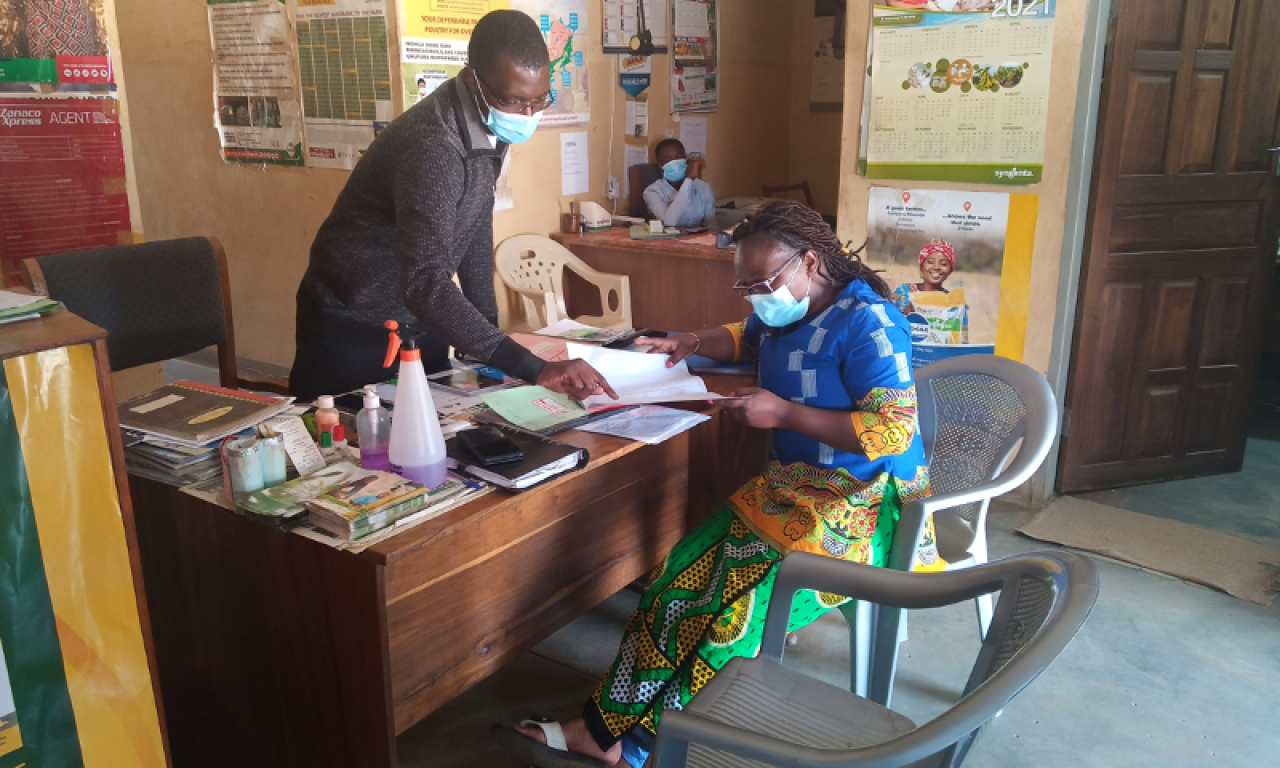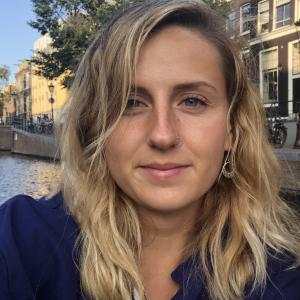
- WorldFish's postdoctoral fellow Catherine Mwema gives insights into how she leads efforts to establish pro-poor, inclusive, profitable and sustainable aqua-business models for supply chain actors in Zambia and Malawi.
- Mwema also highlights existing challenges that may need to be further explored to make aqua-businesses more inclusive and sustainable.
WorldFish is a global leader in aquatic food systems research and innovation, and science and partnerships are the foundation of our work. Our team delivers robust evidence to policymakers and technological innovations to producers, supply chain actors and consumers to transform food systems. In this series, we profile our accomplished scientists in the spotlight.
Catherine Mwema is a socio-economist with interests in supply chains, market systems, gender and nutrition. Mwema is currently a postdoctoral fellow at WorldFish, where she leads efforts to establish pro-poor, inclusive, profitable and sustainable aqua-business models for supply chain actors in Zambia and Malawi. She similarly leads economic and supply chain analysis of the aquatic foods sector in Zambia and was engaged in research on the impacts of COVID-19 on the fish trade. She holds a doctorate in Agricultural Economics from Humboldt University in Berlin, and she has over 13 years’ experience researching and developing inclusive food systems. Since this article was published, Mwema was selected for the Rockefeller Foundation-Acumen Food Systems Fellowship.
What are you currently working on at WorldFish?
Currently, I am working on a GIZ-funded project called Piloting inclusive business and entrepreneurial models for smallholder fish farmers and poor value chain actors in Zambia and Malawi. I work with various stakeholders like the Department of Fisheries, the private sector, cooperatives and farmers to test last-mile inclusive business models aimed at supplying fish feed and knowledge to smallholder fish farmers in underserved regions of Zambia and Malawi. The majority of rural farmers cannot access information on best farming practices or technologies and inputs needed to sustain their farming practices—so we are training small to medium-sized business enterprises to be the middleman and meet the farmers halfway.
So far, we have set up a total of 70 last-mile businesses including small aqua-farms, cooperatives and local agro-shops to sell fish feed and juvenile fish fingerlings and offer training to the small-scale farmers. Using the data collected over the pilot project, I’m assessing the efficacy of the business models in reaching various social groups, their profitability and their ability to be sustained over time.
What's the most exciting part about your research area?
My research is participatory and action-oriented, engaging various stakeholders. Through the research process, I work closely with large private sector players, cooperatives, small-scale businesses and farmers. Learning and drawing insights from the wide spectrum of stakeholders and participants makes the research process very engaging. I have to consider the dynamic nature of the different environments that participants operate in, which is challenging but exciting!
What's your favorite part about the research process and why?
My favorite part of the research process is during the actual implementation and testing of the business models. The implementation provides a unique opportunity for the businesses to create social impact as they reach smallholder fish farmers while also generating rich, in-depth and longitudinal research data.
I get an opportunity to 'walk with the businesses' through the testing process, appreciating their challenges, needs, strategies, successes and lessons learnt.
What's your most memorable experience working with women in aquaculture?
My most memorable experience is when a group of women were able to challenge cultural barriers regarding land ownership and workforce division, finding opportunities to pursue a hatchery business in Zambia. It happened during a business training seminar when the female participants were noticeably eager to learn business skills to develop and manage their own enterprises.
I was intrigued when one of the women answered a question in relation to ownership of the businesses: "As women, we thought we can’t sit around and just say we have no land. We have to do something to earn some income. Using our women’s group, we asked the government through the chief to give us some land for fish farming. Now, we have ventured into fingerlings production and we want to manage our businesses profitably," she said.
How does your research support the development of more inclusive systems?
My research supports the assessment of different social groups and demographics, offering empirical evidence on the development of inclusive systems. Similarly, my research has highlighted existing challenges that may need to be further explored to make aqua-businesses more inclusive and sustainable. Through the piloting process, the inclusive business models show that potential for scaling could be adopted by the private sector, contributing to more inclusive development. Preliminary activities of the project have already attracted private sector investment in building the capacity of farmers and local SMEs in aquaculture management practices.
What innovation do you think has the most significant potential to improve women’s lives and livelihoods in Malawi and Zambia?
The majority of women in Zambia and Malawi mainly engage in postharvest activities, particularly in the small-scale fish trade. During shocks like COVID-19, they face tremendous negative impacts on their businesses, impacting their livelihoods. I think innovative business models that facilitate small-scale fish trade and financial access can improve women’s livelihoods. Market-driven innovations that ensure fish quality, market reach and input access, along with accompanying support services like customized financial products, could go a long way in offering sustainable livelihoods.
What piece of scientific research have you conducted in the past 12 months are you the proudest of and why?
I conducted a review of business models in Africa and Asia that are used for the production, supply and distribution of fish feed to farmers. This review offered important scientific basis and lessons for the identification and adaptation of a select models for piloting in Zambia and Malawi. Similarly, the review formed a basis for a scoping study that was further useful in building onto the pilot project. This review was able to synthesize various case studies on feed business models presenting their strengths, weaknesses and outcomes, which will be useful to other researchers.
What do you hope your research ultimately achieves?
I hope my research will be able to contribute in transforming food systems to offer profitable, inclusive and sustainable livelihoods to smallholders, while engaging various stakeholders in a shared goal of making food systems work for the poor and marginalized.
